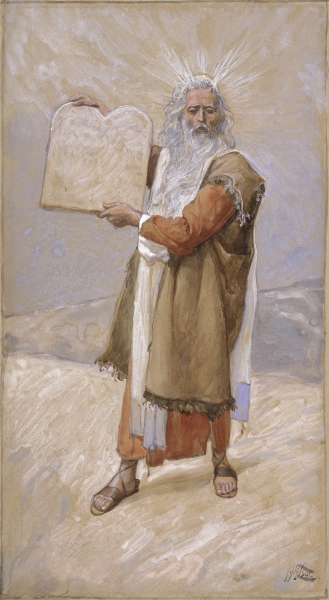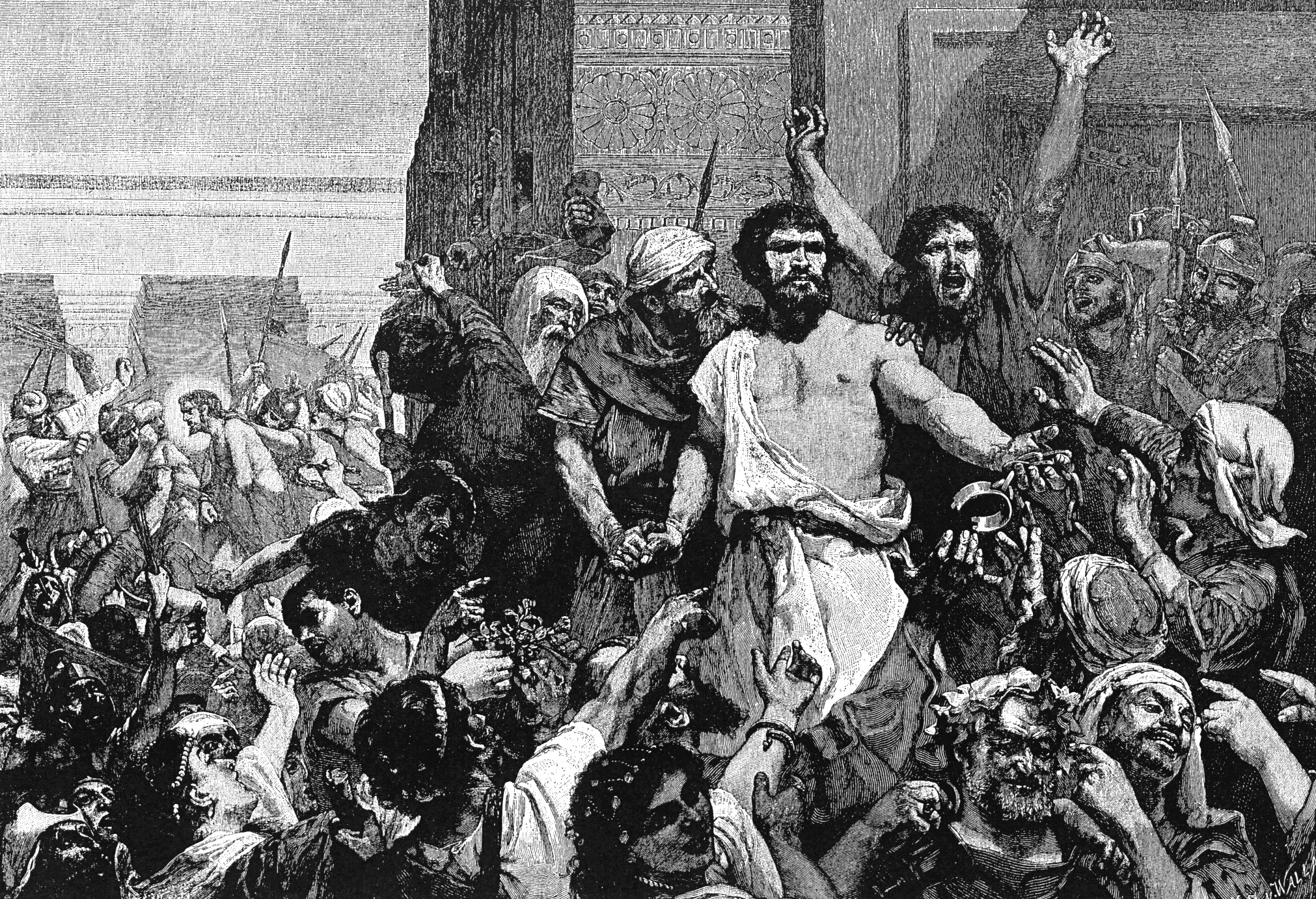 It seems the point of Moses getting upset and smashing God's tablets was to give the Biblical author a chance to repeat himself (although Moses has to chisel it out this time instead of God just writing it out for him; no wonder it took forty days). Selective repetition emphasizes certain points, so let's see what points God/the Biblical author thought were worth emphasizing.
It seems the point of Moses getting upset and smashing God's tablets was to give the Biblical author a chance to repeat himself (although Moses has to chisel it out this time instead of God just writing it out for him; no wonder it took forty days). Selective repetition emphasizes certain points, so let's see what points God/the Biblical author thought were worth emphasizing.God describes himself. Remember, this is the God who would have killed all of Israel for worshiping the golden calf if Moses had not reminded him of his promises to the patriarchs. This is the God who murdered and tortured Egyptians just to show his own power. Here is how he describes himself:
Yahweh! The Lord!The last four lines are consistent with the God we have seen so far. The rest does not seem as fitting. Also, if God lavishes love for a thousand generations and lays sin upon children for three or four, are the children of a sinner who is the grandchild of a faithful follower loved or punished?
The God of compassion and mercy!
I am slow to anger
and filled with unfailing love and faithfullness.
I lavish unfailing love to a thousand generations.
I forgive iniquity, rebellion, and sin.
But I do not excuse the guilty.
I lay the sins of the parents upon their children and grandchildren;
the entire family is affected --
even children in the third and fourth generations.
God also considers it worthwhile to repeat that the Israelites should under no conditions make treaties with the people who live in the land they will soon be conquering. Instead, they are supposed to destroy all marks of the foreign religions. I am not sure the God of the Bible would be happy with the people who allow other faiths to have buildings of worship in their communities.
As for the rest: Celebrate some festivals; give God the firstborn animals and children; keep the sabbath; do not combine blood and yeast in offerings; do not cook young goats in the milk of their mothers. Not quite as interesting as the first couple repetitions.
After this Moses goes back down to the people. He glows brightly with the glory of God and covers his face. Shiny!
New Testament
Pilate gave the Jews a chance to release one prisoner, as was traditional. Prompted by the priests who had had Jesus arrested, the crowds chose a notorious prisoner, Barabbas. So the people who the priests feared would rise up in rebellion if they acted against Jesus earlier were able to persuade the people to act against him so quickly?
Yesterday, the Israelites were portrayed as extremely changeable; they went from worshiping God to worshiping a golden calf just because the calf was there. Today, we see that the crowds that are equally changeable. I would say that the crowds are swayed with unrealistic ease, but then I remember what crowds are like today and think maybe the people in the time of Moses and in the time of Jesus were no more or less changeable than the people now.
Pilate's wife tries to persuade him to release Jesus because she dreamed that he was innocent (what would people say if the spouses of modern politicians tried to use their dreams to influence public policy?). Pilate tries to get the crowd to release Jesus, but the crowd says to crucify him and agrees to take responsibility for his death. I am not good with history, but I believe that this is one of those passages that has been wrongly used to justify antisemitism in the past. Even if this story were true and if the people could take on responsibility for Jesus death by declaring it, one could hardly say a crowd that had gathered one day in Jerusalem had the power to bind all of the Jewish people.
And then some Roman soldiers make fun of Jesus. It makes me glad we live in a society where such behavior is considered unacceptable (
Psalms and Proverbs
Psalms continues with the theme that God watches over those who are faithful to him. For two of the lines in today's reading, I will give a half point to those who believe that everyone will be saved:
He made their hearts,The verse does not explicitly support the universal salvation viewpoint, but it could be used to supplement such an argument.
so he understands everything they do.
Proverbs contains more prelude to discussing wisdom. Believers in pseudoscience should take this verse to heart:
Leave your simple ways behind, and begin to live;
learn to use good judgment.

No comments:
Post a Comment